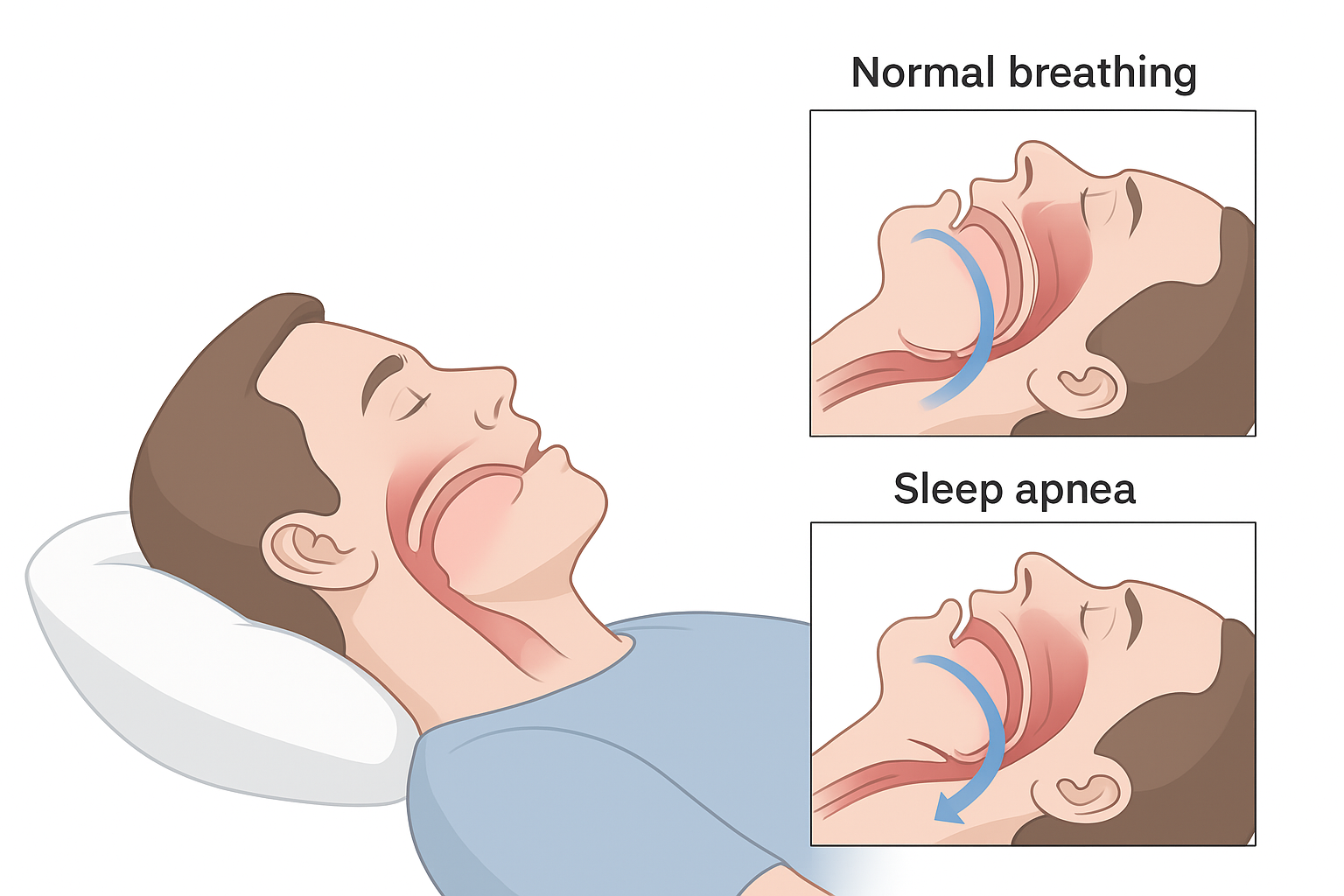Do you often wake up feeling tired, even after a full night’s sleep? Or does your partner complain about your loud snoring? While occasional snoring can be harmless, persistent snoring could be a warning sign of sleep apnea — a potentially serious condition that affects your breathing during sleep. Recognizing the early signs and seeking help from an ENT specialist can make a world of difference to your health and quality of life.
What Is Sleep Apnea?
Sleep apnea is a sleep disorder where breathing repeatedly stops and starts during sleep. It happens when the muscles in your throat relax too much, blocking the airway and disrupting normal breathing patterns. Each pause in breathing can last from a few seconds to minutes — often going unnoticed but severely affecting your oxygen levels and sleep quality.
Common Signs and Symptoms
You might have sleep apnea if you experience any of these symptoms:
-
Loud, chronic snoring
-
Gasping or choking during sleep
-
Morning headaches or dry mouth
-
Excessive daytime sleepiness or fatigue
-
Difficulty concentrating
-
Mood swings or irritability
-
High blood pressure
If you or your partner notice these symptoms frequently, it’s time to get a sleep study or ENT evaluation.
Why You Shouldn’t Ignore the Signs
Untreated sleep apnea doesn’t just cause poor sleep — it can lead to serious health complications like:
-
Hypertension (high blood pressure)
-
Heart disease and stroke
-
Type 2 diabetes
-
Weight gain and metabolic issues
-
Increased risk of accidents due to fatigue
Ignoring it may also worsen your mental health, leading to anxiety, depression, and poor memory.
Diagnosis and Treatment
An ENT specialist plays a key role in diagnosing sleep apnea. After examining your airway and nasal passages, your doctor might recommend:
-
Polysomnography (sleep study) to measure oxygen levels and breathing pauses.
-
Lifestyle changes like weight loss, avoiding alcohol, and side-sleeping.
-
CPAP therapy — Continuous Positive Airway Pressure to keep your airway open.
-
Surgical treatments such as nasal or throat surgery if structural issues cause blockage.
-
Minimally invasive laser or radiofrequency procedures to reduce tissue causing obstruction.
With the right treatment, most patients experience dramatic improvement in sleep quality, energy, and overall health.
When to See Dr. Diptiman Baliarsingh
If you or someone you know snores loudly, gasps during sleep, or struggles with morning fatigue, consult Dr. Diptiman Baliarsingh, a leading ENT specialist in Cuttack, for advanced evaluation and personalized treatment. Early detection can help you breathe easier and sleep peacefully again.
Conclusion
Snoring isn’t always “just snoring.” It might be your body’s way of saying something’s wrong. With today’s advanced ENT solutions, snoring and sleep apnea can be treated effectively, helping you regain restful sleep and protect your long-term health.





